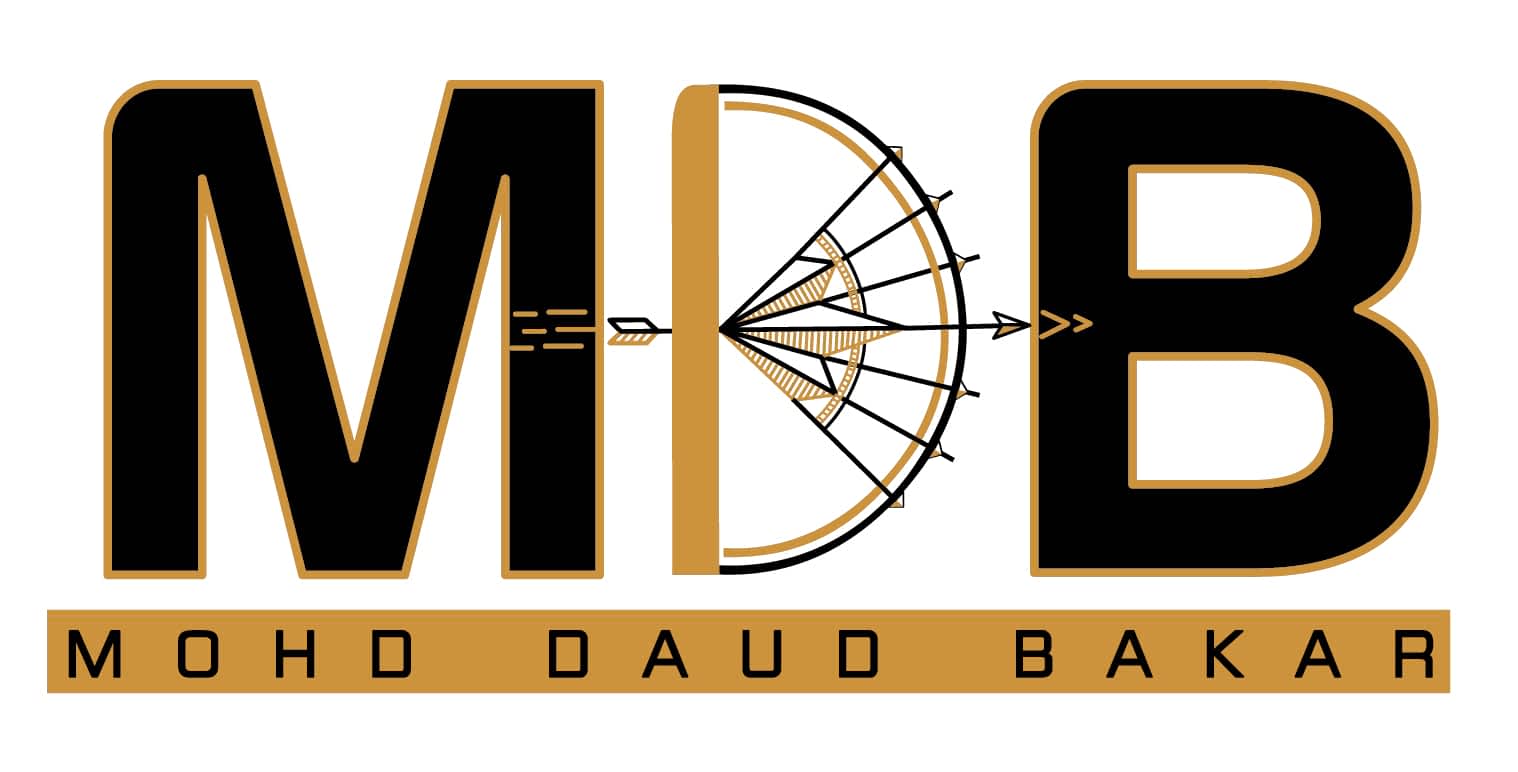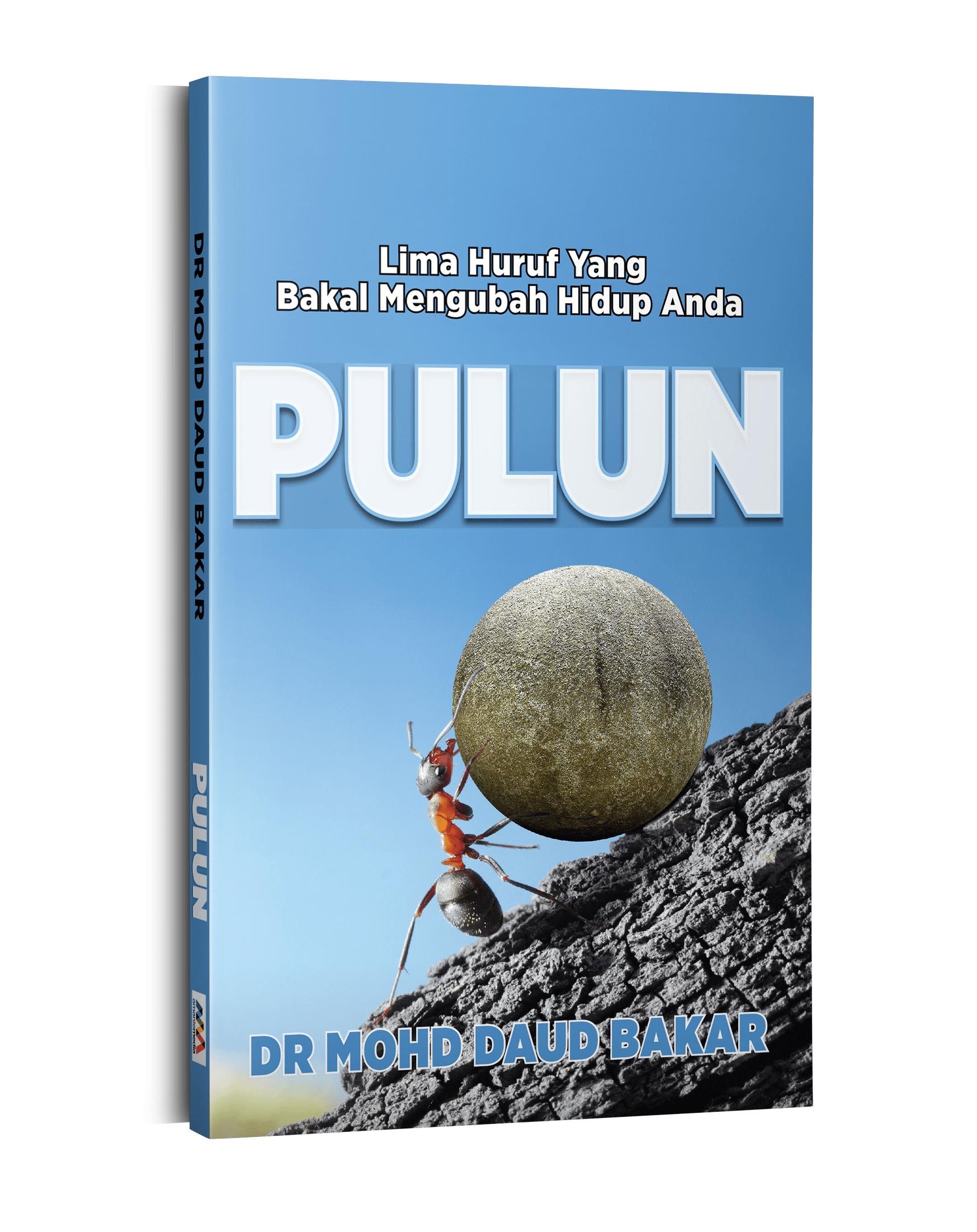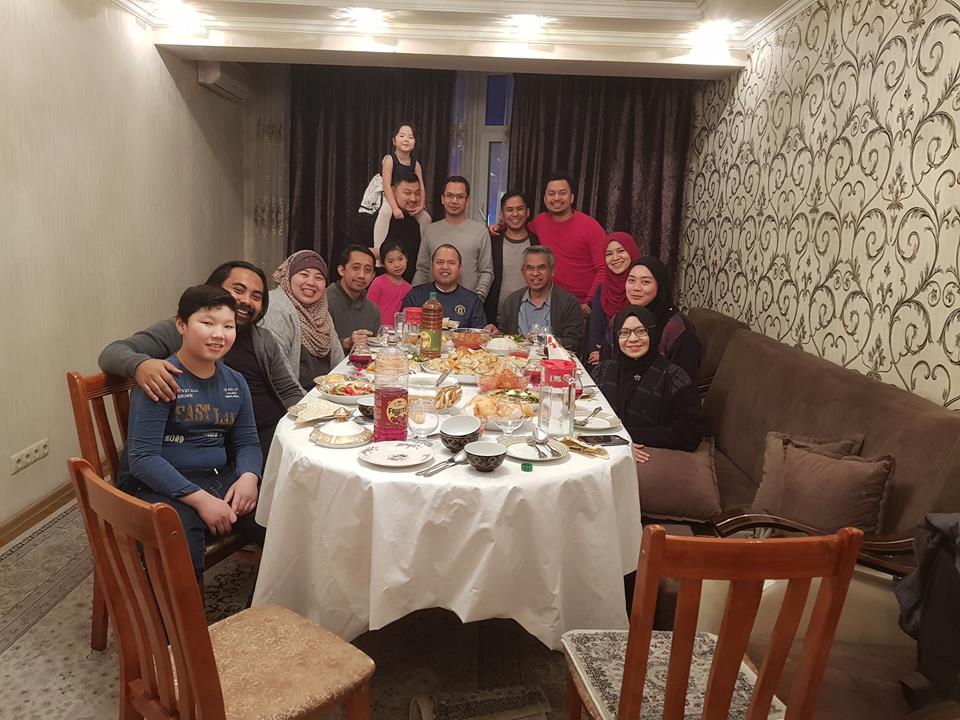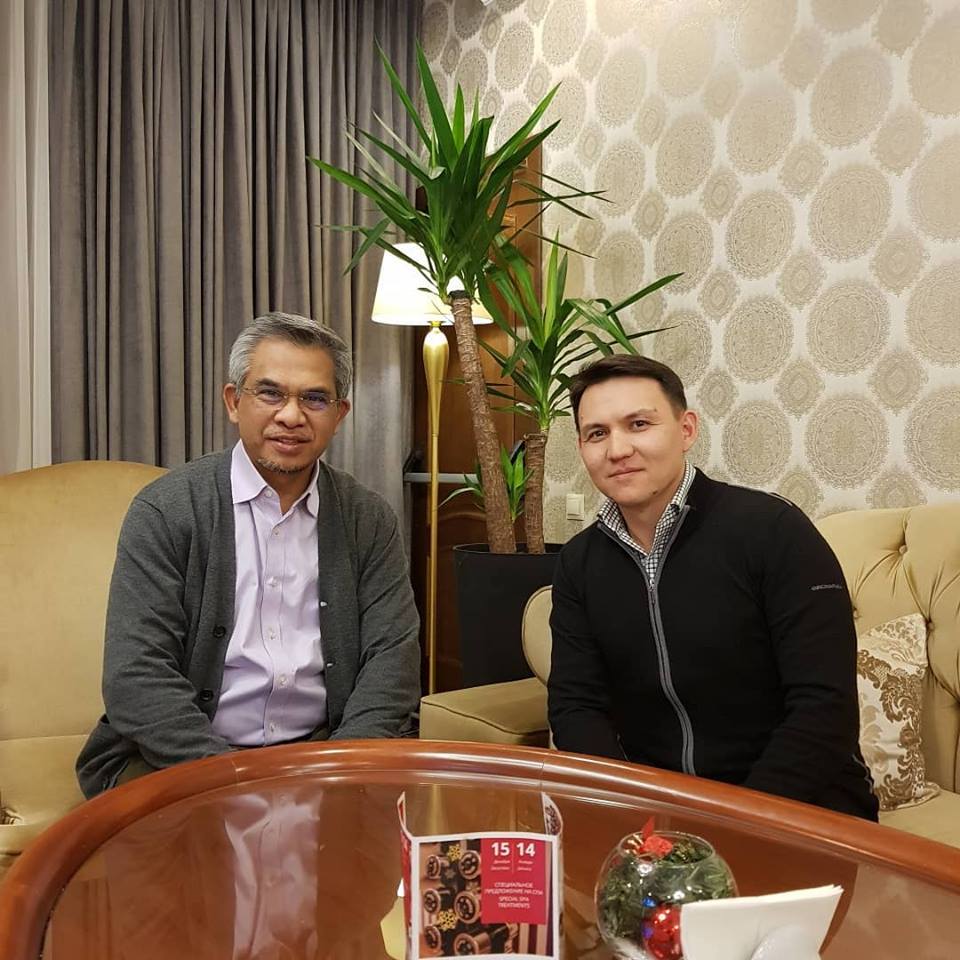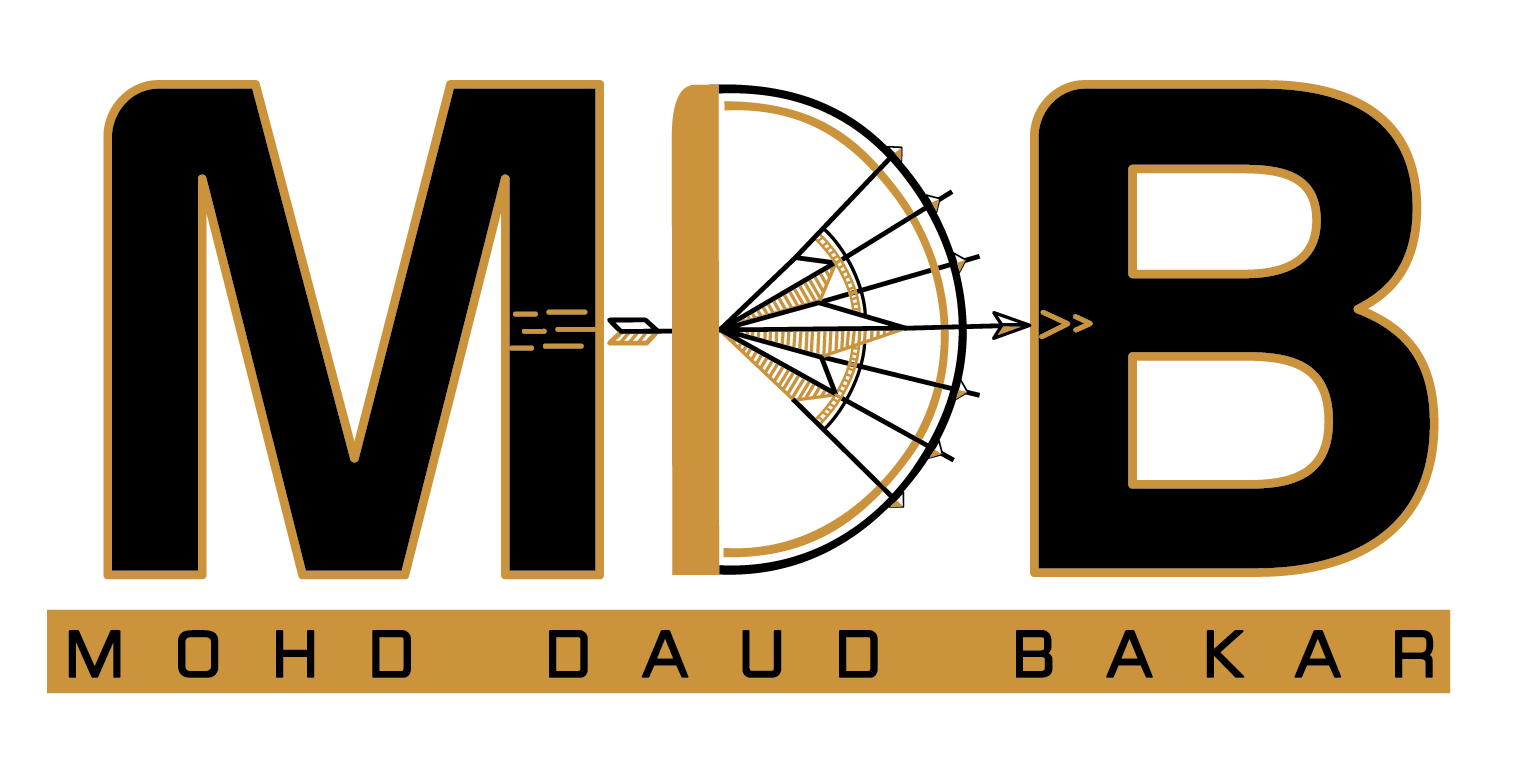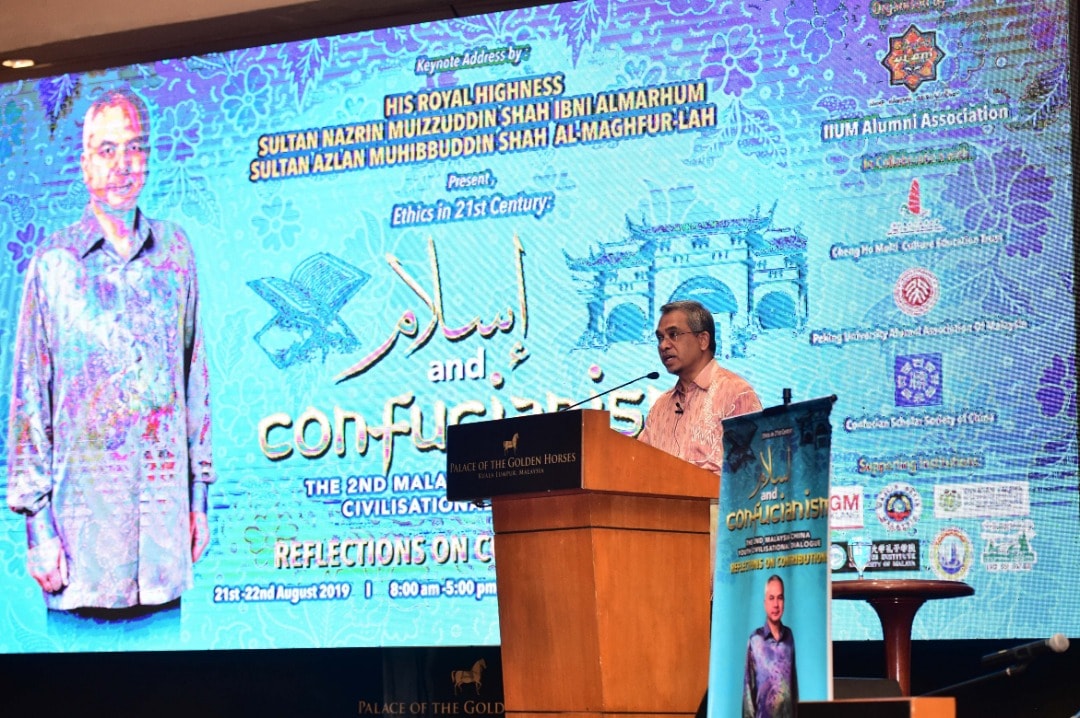
This paper was presented at ISLAM AND CONFUCIANISM, The 2nd Malaysia - China Youth Civilisational Dialogue on 21st August 2019
1.0 Introduction and Mind Setting
Personally speaking, I know how deep we all feel about the issue of managing new global realities, particularly because it is a subject that affects a huge number of people – from those who are cognisant of the rapid changes that are happening and affecting the world community on a daily basis and those who may not know about it. As our Islamic community is moved by our faith and (our current) understanding of Shariah, we need to be able to respond to most, if not all major issues which are impacting us on all fronts, but guided of course by Shariah. What do we call this Shariah guidance? I call this guidance as Shariah design thinking.
Design thinking refers to the cognitive, strategic and practical processes by which design concepts (proposals for new products, buildings, machines, etc.) are developed by designers and/or design teams. Design thinking is originally associated with prescriptions for the innovation of products and services within the business and social context. It helps to simplify matters and make is cost-effective and more immediate in terms of impact. However, some of the prescriptions have been criticised for oversimplifying the design process and trivialising the role of technical knowledge (quoted from Wikipedia with some minor adjustments).
In a nutshell, design thinking encourages people to explore new alternatives and create options that never existed, thus unlocking better solutions. By and large, it focuses on the need of the users or community at large. It is about understanding the context and culture of the stakeholders involved. This understanding is founded on direct observation of any phenomenon and qualitative data, which eventually produces stories that people can really empathise with. Ultimately speaking, it aims at greater creativity and better solutions faster, namely by smart and win-win collaborations with all stakeholders. It is useful in many fields of life, from business to education to environment to administration and even to manage the world conflicts.
As far as Islamic communities are concerned, how do we craft a Shariah design thinking in relation to managing global issues and civilisational relations? I may not have a concrete answer to this. However, allow me to share my own practical experience on this matter. Many have spoken on the importance of mainstreaming Islamic values, ideas, philosophies and products, particularly on the global platform. Mainstreaming is a great clarion call. Nevertheless, a tough question that follows; have we ever achieved anything on this score? I doubt that we have achieved anything remarkable.
I have little experience on this and I hope this may be useful in crafting the Shariah design thinking. In the world of Islamic finance, I genuinely believe that we can’t achieve the fullest sense of mainstreaming of Islamic finance unless we can bring the world’s best standards and practices to be embedded within our own Shariah architecture and design or vice versa. Therefore, when I was invited by the World Gold Council (WGC) to work with them to infuse the World Gold Council standard into the global Islamic finance landscape, I accepted both the offer and opportunity without any hesitation. I later managed to bring the Shariah standard setting body of the world that is the Accounting and Auditing Organisation for Islamic Financial Institutions (AAOIFI) to work together with the World Gold Council. This collaboration has produced a new Shariah standard on gold, which was ultimately endorsed by two global standard setting bodies; the WGC and AAOIFI.
What is so special about this move? If you can’t appreciate the role of design thinking in life, particularly in our current scenario which is very competitive and cluttered, you may not be able to see the real value behind this synergistic and symbiotic approach. I will explain some aspects of it. Everything in today’s life is interlinked and interconnected. Globalisation has become more real compared to a few decades ago when the term was initially coined. In recent times, globalisation has started to take note of the interests of humanity at large, and this was not apparent a few decades ago. Meaning, everything we do or we plan to do must be linked to the welfare of humanity on all possible aspects and dimensions. There’s no two ways about it.
Finance is one of these dimensions but the financial world has close correlation with many other issues, such as the environment, anti-money laundering act, corporate governance, corruption-free, social finance towards a caring society, growth and sustainability. The great minds of the world community have put in place many robust and prudential standards to govern the conduct of mankind to achieve a better, safer and more sustained life on this planet for everyone to enjoy. We need to collaborate to actualise this noble objective. We can’t work in isolation, can we? Let’s tear down the silos and hit the bull’s eye together.
In actuality, working together can bring down the cost collectively, such as in the case of fighting against global warning and the spread of deadly viruses. It can also provide a more effective and speedy implementation of anything that is cross-border in nature. Here, I am neither suggesting nor implying that the Shariah community and fraternity must accept all of these standards without conducting the proper Shariah due diligence. All that I am trying to articulate and impress here is the need to engage more actively with all the relevant standard setting bodies and agencies in all dimensions of life; finance, environment, trade, mining, resources, sustainability, governance, social finance, ethical values and even the media and entertainment. Yes, the whole nine yards.
In the beginning of the engagement, it would be difficult to have a common script and narrative between Shariah and those various industries and their care takers. Engagement is much harder than disengagement in all that we do. Yes, it might be an uphill task but when faced with an uphill task, there’s only one thing to do: look forward, never backward. For example, the collaboration between AAOIFI and WGC was the first collaboration of that calibre in the global financial market. It helped all relevant stakeholders to appreciate each other’s culture and context, and that has helped in making gold to be in tandem with both the international gold standard and the Shariah-compliant standard. This would have been unthinkable if both agencies were to work in isolation. Interestingly, this AAOIFI Shariah standard, which is supported by WGC has been described as “Godsent” by one prominent global investment guru on emerging market (see Mohd Daud Bakar, “Gold in Islamic Finance – AAOIFI Shariah Standard on Gold in Collaboration with World Gold Council and its Expected Impact”, paper presented at AAOIFI-World Bank Annual Conference on Islamic Banking and Finance, 6 - 7 November 2016, Manama, Bahrain).
2.0 Why do We Need Shariah Design Thinking?
From the outset, we need to underscore that Shariah was revealed in a coherent manner. No single Shariah provision annihilates another. More importantly, it is not only coherent, but every language construction of Shariah – which is of high level Arabic - contains a cognitive dimensions. These rich-based words and constructions of words in the entire Quran provide a deep and intense foundation to create what the modern neuroscientists would call natural language processing (NLP) and the more advanced level of natural language generation (NLG).
Why am I saying all of this? We can no longer be ‘isolationist’ in facing global issues and themes. A silo mindset belongs to the prehistoric era of the world. At present, everything seems to be interconnected. We cannot take the issue of humanity or refugee or fair trade or even corruption in isolation. The world has changed both horizontally and vertically, to the effect that an infused and integrated ecosystem has been created in no time. However, fortunately, the coherent theory of a theme (al-tanasub) was a popular theory in Islamic discipline, though it was marginalised in modern Islamic studies. The immediate impact is that certain segments of the community tend to overestimate their niche area, as well as underestimate other parties’ capabilities. Both are detrimental to civilisational relations.
To address the ethical issues with regard to the welfare of certain minority segments of the community or senior citizens, human trafficking, rights of refugees, environmental protection, financial corruption and many other issues, it would be a mistake to undermine any aspect of knowledge and wisdom in the entire Divine texts, as well as the verticals of life. It was reported that climate change did not only result in new costs of up to USD1 trillion a year to ensure global sustainability, but it also widened the economic inequality gap across regions and geographies.
This is the negative side of the story. How about the idea of connecting the world through the one-belt-one-road initiative? This warrants a thorough and comprehensive scanning and a constant engagement on the global platform. These are some of the changes that are imposing themselves on the world community – for good or bad. Are these changes real and impactful? Find out more in the next section.
Even without comprehensive and accurate knowledge and insights of the ins-and-outs of all these issues, it seems that some people have all the energy to confront the new global realities. This becomes more complicated when most of the new global themes and issues are interconnected and interdependent. A simplistic mind to take on the theme of Sustainable Development Goals (SDGs) or Anti-Money Laundering Act (AMLA) or even corruption or free trade or nationalistic policy on world trade would make the whole issue more confusing and cluttered.
Be mindful that one of the new shining traits and features of the new global realities is that the advocacy of any policy or direction is well supported by strong data – past, current and future. If our Muslim thinkers and solution providers, as well as trend setters are not well trained in analysing data (both structured and unstructured; small and big) or in processing data using smart technology, then the quality of engagement would be weakened and diluted. The era of utopian calls or idealistic value propositions is almost over. Perhaps it is already over by now, particularly in issues which are global in nature. Date or rather the precision of data has become the new ‘religion’ in our current global climate. There’s even a saying that goes, “In God we trust, in data we believe.”
As maqasid al-Shariah (the ultimate objectives of Shariah) is built upon the empirical data of the Divine texts (istiqra’), the same goes to the Shariah design thinking. As a matter of fact, the Shariah design thinking is much more intense compared to maqasid al-Shariah. In what sense? The Shariah design thinking must be powered by both the maqasid al-Shariah and the data of the world. Put it differently, Shariah design thinking is centred upon maqasid of al-maqasid (that is the aggregate collection of all the high purposes of Shariah). This is one side of the coin. The other requires deep knowledge and analysis of the data and policies, as well as the trends of the world.

3.0 New Challenges and New Realities
I am saddened to know that some Muslim scholars and thinkers – not to mention the Muslim masses – are always of simple minded and horizontal thinking in looking at global issues, instead of building an inquisitive mind and being vertical. It would be a mistake if we belong to this type of mentality and if we tend to be working on the horizontal line. Ibn Khaldun has led the way in engaging with other civilisations – of course during his era - in a manner which is proportionate and strategic.
I have purposely underlined the words proportionate and strategic, which refers to being proportionate and strategic in one’s mindset and action. This is because these are the ultimate skills that every great Muslim leader – in all fields of life - must have at any point in time. As much as we would like to have comprehensive and fully entrenched Shariah-inspired solutions to modern issues and themes, I would like to argue that we would not be able to do that regardless of how hard we try.
Ibn Khaldun is sadly missed, as we face the new realities of the world which are exceptionally unprecedented. In his magnificent book al-Muqaddimah, he unlocked many great theories and observations about humanity, from sociology to anthropology. He is considered by many as the catalyst for many civilisational issues and themes. However, suffice for me to say that all of these accolades were the result of the deep observation of data and actual experience in his intensive travels. I would like to sum up his personality as a man of contextual and cultural wisdom. The focus on both the context and culture should be the starting point of any new engagement task towards a new global reality.
In this regard, we need contextual wisdom, instead of textual wisdom (what more racial or sectoral or regional wisdom), as the variables of life are always indefinite. Thus, they can’t be textually governed by the Divine texts, which are definite and limited. Make no mistake about this statement. I am not suggesting that we undermine the power and bandwidth of the Divine texts. Not at all. On the contrary, I would like to propose that we enhance the bandwidth of the Divine texts by looking at them from a contextual perspective – both of the Divine texts and facts of life. I owe everyone an explanation on this.
Let us take the case of one the most celebrated projects in the 21st century. This is about the One Belt-One-Road Initiative, which has been championed by China. This gigantic project has been viewed by many stakeholders of the world from many different perspectives, including from both the commercial and ethical perspectives. Put aside the commercial aspect and just focus on the ethical dimension of this project. It has been raised by many that a project of such magnitude may cause the affected areas to face environmental and sustainability issues. This has been the worry of many people and some are even vehemently against this project.
After a series of intense engagement, the stakeholders of the world are now content with the future of the project, as the promoter of this project has agreed to uphold all the good standards and best practices – both commercially and ethically. This is the new way of managing civilisational relations. We cannot avoid disagreement but we can’t afford to disengage. Based on the current data of the world and supported by the coming of IR 4.0, the world is now moving towards the economy of the geography. Connectivity has become the new equity.
4.0 Template of Shariah Design Thinking
Speaking of the new face and voice of Shariah thinking algorithm, I would like to submit that it should start from the proper alignment of the Shariah mindset as the guiding and elastic principles and themes of life. What do these principles and themes of life stand for? It is my intuitive insight that these principles are a combination of both maqasid al-Shariah and the clinical definition and function of Shariah (underlined for emphasis). I will attempt to provide a clear-cut template, so that we can leverage on the combination of these great principles to be practical in facing new global realities and more so, issues pertaining to civilisational management and engagement. Here we go.
Maqasid al-Shariah is the discipline that can produce oxygen for humans. Surely, the biggest problem to humans is when they run out of oxygen. As for maqasid al-Shariah, which is manifested in the five highly established verticals, there is much more to this list than just a few flashing Shariah themes.
We need maqasid al-Shariah to rejuvenate the entire Shariah and Shariah-inspired blue print for the institutional life and co-existence with many other ideologies and value propositions of the modern world. I have taken the liberty to propose my strong conviction, inspired by the clinical definition and function of Shariah. Among others, Shariah in its entirety argues for transparency and it also quickly discounts the opaque. This has been part of the blood line of Shariah. Many Islamic legal maxims and Islamic juristic rulings, not to mention maqasid of maqasid al-Shariah have collectively established many clinical functions of Shariah with regard to being transparent and not opaque. Yes, be careful of muddy waters, as you do not know what lies beneath.
This is a new way of looking at Shariah and this becomes more relevant, as we face new global issues, which are normally the aggregate of the world’s new preferences and preferred directions. Arising from this, any new global policy, be it military or economic or financial or sustainability must be very clear and transparent in terms of input and output, as well as its scope and impact.
For example, if the current World Trade Organisation (WTO) protocols were to be revised and recoded, then the world community, including the thinkers and policy makers in Islamic countries must be able to see through this newly proposed world trade protocols from all perspectives and on all fronts. As mentioned before, we can no longer afford to be simple-minded in our thinking. We are not only expected to understand the issues in and out, but we also need to assess our readiness and its impact on Islamic countries. Nelson Mandela and his government made a terrible mistake when they signed and joined the WTO then without knowing the impact of WTO on their local companies, particularly in relation to government policy on subsidy. Most of their local companies have succumbed to failure, as the government can no longer provide any incentive or subsidy to local companies, as imposed by WTO. This was a great disaster, which was caused by the inability to see through the impact of any new policy of the world on one’s local economy.
Looking at its entire behaviour in the literature of fiqh, fatwa, qada’, qawaid fiqhiyyah and maqasid al-Shariah, another well-entrenched principle from this new methodology is the strong conviction that Shariah never provides one solution for all the problems and situations requiring a Shariah-based solution. One solution-fits-all was never part of the grand design of Shariah (for more details, see Mohd Daud Bakar, Shariah Minds in Islamic Finance (2016) and Shariah is Life (2017)). This is the easiest and most common mistake committed by many agencies and individuals in the Islamic world, as they become so attached to one particular solution. Worst still, this well-entrenched solution of theirs has never changed since the last few decades. If we cling too tightly to the past, we would fail to see the future.
In facing the rising trend of corruption, we need to devise more than one solution to take the bull by its horn, so to speak. Let me explain what I have in mind. It is about unexplained wealth.
It appears to me that integrity will not be working – as we expect it to be - when the ecosystem is too polluted and corrupted. Here, the argument of creating the criminalisation of the whole value chain that leads to financial integrity breach is both relevant and timely. This is essential, though this is a little harder to do. What do I mean by invoking the motion of value-chaining the criminalisation of anything which is of mass-destruction to the community? It is an important theory if we really want to fight corruption at its root! It is equally important in other aspects too such as human trafficking, food security, justice and fairness and anti-money laundering activities.
More often than not, financial integrity will result in creating trust in the same way that lack of integrity will lead to trust deficit. Simply put, we may have lost the trust in the process too if we don’t pay due attention at the financial integrity. To make the whole value chain that triggers any breach of financial integrity accountable and punishable is good. However, be mindful that not all the time that we are in the position to identify the root and the chain of the problem so that we could provide the right measure to address this.
Notwithstanding that, as part of hard facts of human life for the last 1 billion years, symptoms or indicators of anything could be clearly visible and tangible in one way or another. It doesn’t matter if we can’t put our hands on the cause of a problem provided we could underpin and see-through the manifestations or indicators of a particular problem. These external manifestations and expressions are useful to trace any malpractices and that would include any breach of financial integrity. Phenomenon like unexplained wealth or unjustified wealth or unreasonable life style and patterns of excessive spending could point to a direction which would render a person (of the above character) having a question to answer before the jury. For all intents and purposes, they are good indicators to establish the truth.
I hope that it may not be too extreme to propose that any of the above manifestations – subject to certain stringent and objective standard and benchmark - would be deemed as strict liability (taking the analogy of some criminal cases) in the sense that a person or a group of people who are linked to unexplained wealth or unjustified wealth are prima facie assumed to be guilty of committing financial crime unless proven otherwise. The burden of proof, in this case - in contrast to the established principle of law of presumption of guilt - is now being reversed to the accused to prove that he is not guilty as presumed.
What is my basis of saying that? If the criminal law of the country has taken stern and decisive stand against dangerous arms and pornography materials by imposing strict liability concept, what could stop us from taking the similar approach if we are really serious and adamant about fighting any form of financial corruption. After all, the impact of the breach of financial integrity will be more damaging in comparison to dangerous arms and pornography items. As a matter of fact, this concept of strict liability is more apt for financial corruption as it is always faceless and victimless. It has all the reasons to be treated differently (and more strictly) to protect the entire victims which are the people as a whole. I really hope you are really convinced!
5.0 What is Next?
The way I see it, in order to prepare ourselves, i.e. not only to be in sync with the new global realities but also to be able to manage all of these global issues diligently and favourably; we need to fully understand the narration or algorithm of any issue of the modern world. Understanding the modern world narration is very essential in two ways; it is either to support the good element in that policy or direction or to underscore the bad elements hidden between the lines, in order to calibrate the arguments and intellectual responses to deal with this bad and ugly imposition of policy on the world community.
Also, the world expects great things from the Shariah thinking algorithm to bring in new perspectives in looking at or responding to many compelling global issues. Here lies the great opportunity, as well as challenge.
The problem is that some Muslim intellectuals and thinkers have either undermined the bandwidth of global challenges or overestimated their intellectual prowess; perhaps their emotional intelligence bandwidth to deal with these new hard realities. For the sake of argument, if this is true, then there is simply nothing else that we can do to be the spokespersons of the Islamic community or the voice of the Islamic world.
All in all, I have observed that the Muslim communities have been responding to most new global realities by relying heavily on specific and particular Islamic rulings, which are detached from the high policies of Shariah, which are better known as maqasid al-Shariah. A small portion of the Muslim communities have tried to infuse maqasid al-Shariah in finding their response to global affairs. However, in so doing, they have confined maqasid al-Shariah to fiqhi manifestations, whereas in reality, maqasid al-Shariah are beyond fiqhi manifestations and in most cases, have nothing to do with any fiqhi realities.
The real and clinical version of maqasid al-Shariah is all about placing the high level policies and directions inspired by collective, cumulative and compounding effect of the Divine texts, infused together with the facts of life, which include policies of the world and policies of certain countries, which have immediate effects on the entire world (see my forthcoming book on Maqasid al-Shariah: The Face and Voice of Shariah – Embedded with Big Data Analytics and Artificial Intelligence).
In this paper, I would like to add another vertical to equip the global Shariah algorithm with the necessary tool to face all of the far-reaching issues, from trade tensions to the environment and green financing to freedom of expression and trade to political and military hegemony to managing senior citizens. In addition to maqasid al-Shariah, this new vertical is the inspired Shariah mindset or algorithm that is timeless. I would like to personally call this approach as the “Shariah design thinking” or in brief, “Shariah algorithm”. It assists design thinking in putting in place the right policy and articulating the right voice at the right time with the appropriate dose.
Let us have some throw back of Islamic history. What would we call the action of Prophet Muhammad PBUH when he liberalised the ownership of land just after the event of Hijrah through his famous and ground-breaking, as well as far-reaching statement; “Whomsoever cultivates the underserved land, the land shall belong to him”? Is this part of Islamic jurisprudence of fiqh or maqasid al-Shariah or something else? In the same vein, he PBUH set up a new market place in the city of Madinah after being denied entrance to the biggest market (suq) in the city of Madinah, which was controlled by the Jewish community. What and how do we construe this affirmative action by Prophet Muhammad PBUH? In my humble opinion, these (and many other similar engagements in the entire body of Islamic history) reflect a new Shariah algorithm in dealing with pressing and compelling issues in the society, be it local or global issues.
I would like to believe that when we are equipped and embedded with the new mindset (as well as skill set), we may now want to engage with the entire world from our seats in the front row. Gone are the days where our engagement was only from the passenger seat and in the secondary or isolated platform. There is more to it than that. The power of Shariah design thinking is not only limited to being relevant and trendy with the current global issues – in whatever stand and direction that we may advocate, adopt and embrace – but also, more importantly, to shape the future or to set the trend for the future. This is exceptionally lacking at the moment on many fronts.
What do I mean by this? We tend to come to the global platform when the relevant issues have been already mooted or documented. It is always the case of being too little too late. I have plenty of examples which are painful and embarrassing at the same time. In the financial world, for example, we are intelligent enough to know that the accounting treatment that is based on marked-to-market is a water-tight approach to avoid any valuation risk and all related issues of artificiality, such as impairment and accounting profit. Likewise, we know deep down in our hearts that liquidity risk is just as important as other types of risk.
However, the great Muslim minds are not fast enough in advocating these issues on the global platform. Our Muslim experts do participate in this global movement but merely as the commentators and discussants. The Shariah algorithm that we have is not powerful enough to ignite fresh ideas of global and international standard. We have failed to train and develop our Shariah algorithm to be the trend setter. So, at the end of the day, we only become trend followers.
The same goes for the United Nations’ Sustainable Development Goals. It was the world community, particularly the West who mooted this idea of SDGs to be realised by 2030. Many of our Muslim intelligentsia joined the movement when the locomotive of SDG has already been powered and geared to move forward. Having said this, unfortunately, some Muslim thinkers are still struggling to understand both the essence and impact of these 17 SDGs, what more of the 170 sub-verticals of these 17 core goals.
On the other side of the spectrum, everything has been precisely documented in the world-class documentation of SDG since 2017 for easy adoption, monitoring and impact measurement. Given this hard reality, we need to do a lot of catch-up game. A catch-up game, in whatever field of life, is not engaging and transformative. To engage with the world and deal with global issues, we need to play a role from the driver seat. We can no longer remain in the passenger seat. So, how do we achieve that? Be fully enlightened with all global issues in-and-out and be inspired by maqasid al-Shariah and the new skill set of Shariah design thinking or in brief, Shariah algorithm.
All in all, this presentation seeks to underscore the importance of the Shariah design thinking moving forward. The Shariah design thinking is poised to offer better solutions and alternatives to manage the current themes of the world. How to develop Shariah design thinking? Calibrate the maqasid of al-maqasid with the data and trends of the world in the demand and supply chain of the modern world. I would like to believe that the pervasive data of the modern world could a new wisdom to the new world; the world of data.
To this end this paper, I wish to quote al-Kindi (a 9th century mathematician, cyptographian and surgeon in the city of Baghdad), “We ought not to be ashamed of appreciating the truth and obtaining it wherever it comes from, even if it comes from races distant and nations different from us”. Surely, the data of the world is the reflection of the data of the humanity cutting across races and nations.

